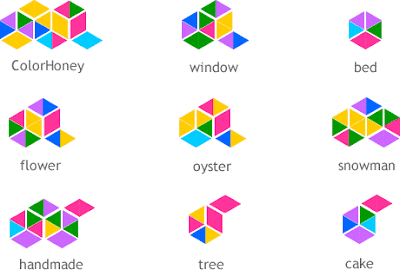What brought me to Omniglot? I was looking for a clear table of the Arabic alphabet for Uyghur. I'm not trying too hard to study Uyghur any time soon, seeing as how I have my hands full, but today I couldn't help but scratch the itch by doing some light reading in the form of this Handbook for Modern Uyghur, kindly passed on to me by my friend David. I didn't get very far before my utter lack of familiarity with the Arabic alphabet started feeling like an overwhelming handicap. Romanization feels like cheating to me.
Rewind to Korea, January 2011. It was during this trip that David and I bonded over our interest in Uyghur. Meanwhile, with the help of PK, I managed to become somewhat phonetically functional in Korean hangeul. By which I mean I could sound out (at a snail-like pace) words on subway signs. The meaning of the words, of course, was beyond me.
PK's "guide" was my only resource, but I couldn't have done without it!

I was really excited because, as I mentioned earlier, it was my first time traveling in a country where I was linguistically incompetent.
Fast forward to Yunnan, January 2011. I never ceased to be fascinated by the various scripts I encountered throughout the province, most notably Tibetan and Dongba, a pictographic script formerly used by the Naxi of southern China, although I suspect that these days it appears on signs only for tourism purposes.
Dongba script on a sign near Lijiang old town:

Multilingual road sign in Zhongdian:

Fast forward to Thailand, February 2011. Bolstered by my success in Korea, I over-confidently assumed I could learn the Thai alphabet in 2 weeks. Not so! By the end of my stay I could only recognize the equivalents of a, ae, r, & ng. Unfortunately I had no resources on hand, and this book in the Chiang Mai University Library couldn't be absorbed in one sitting.

Something I found interesting was the use of what I perceived to be Latin-script-style letters adapted to the Thai alphabet to form a modern-looking typeface. Thus, the symbol for the "r" sound seems to become a backward "s". There are also letters that look like s, a, backward u, backward B...see the instant noodle cup below. (All of this is based on personal observation and not backed by research!)

The differences between traditional vs. modern-style scripts made it a lot harder to pick out letters of the Thai alphabet on, say, signs and advertisements. (I amused myself during rides in moving vehicles by trying to do so).
So I didn't learn the Thai alphabet. But I can confidently state that I am now decently familiar with the Russian variant of the Cyrillic alphabet, which may come of use because the Cyrillic alphabet is sometimes used to write Uyghur. Since returning from my travels, I've been working on Russian by painstakingly writing out song lyrics in both the upright and cursive forms of the script, which are not entirely the same. Those m's and n's are tricky!
Yes, I'm a total nerd, but don't think I'm a linguistic genius. My spoken Russian is limited to phrases like "How are you?" and "Good/Bad", although listening to Russian rock music has helped me learn useful words like "cuckoo" and "gunpowder."
Now that I've got my Russian class to keep me motivated, and because I'm in the midst of researching employment options in Xinjiang (which quickly devolved into listening to my new Uyghur music interest, Arken Abdullah), today I took a break from studying Кино lyrics and read about Uyghur language basics instead.
Which brought me Omniglot. Which brought me to this:
ColorHoney, a constructed script that could theoretically be used to represent English. It looks a lot harder than the Thai alphabet.
I don't plan on devoting energy to learning a constructed, alternative, or "magical/fictional" script at any point, but...the possibilities are endless!
(Unrelated: Does alphabet soup exist in other languages?)

Ehh, being literate is overrated - I think I'll just wait for this app to come out for the arabic alphabet:
ReplyDeletehttp://www.youtube.com/watch?v=h2OfQdYrHRs&feature=player_embedded
Granted, I'm sure it would have trouble with the modern style scripts too
There's supposed to be something like this for Chinese but somehow I doubt its efficacy - after all, how did we get so many hilarious Chinglish signs?
ReplyDelete